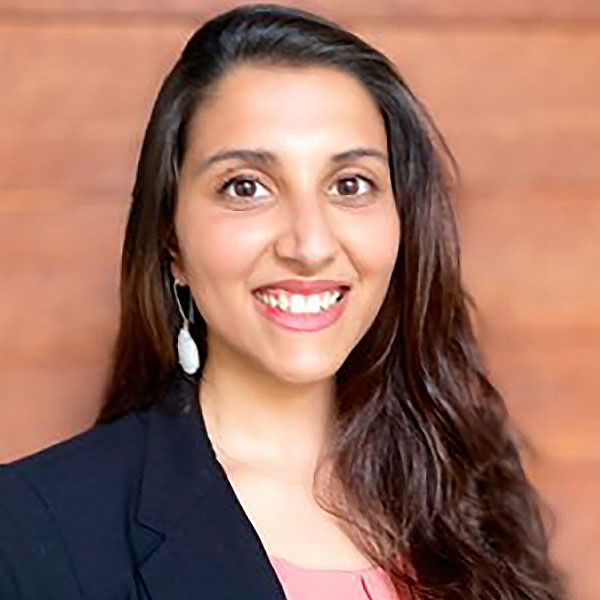Making the Most of Training Years: An Interview With Vijay Divakaran

Devina Jagota, DO
I recently asked my program director and mentor, Vijay Divakaran, MD, MPH, FACC, on how to make the most out of my experience this year. His passion for fellow education is apparent in all the work he does, and he also serves as the chair of the Cardiovascular Training Section for the ACC Texas Chapter. In this interview, he shares his personal journey in cardiology and tips for fellows attending ACC's state and national conferences.
What stemmed your interest in cardiology and interventional cardiology?
I attended medical school in at Madras Medical College in Chennai, Tamil Nadu, India. I completed a master's in public health at the University of Texas, and then went on to do my residency in internal medicine at State University of New York. In addition, I did my fellowship in cardiology and interventional cardiology at Baylor College of Medicine in Houston, TX. I have leaned towards cardiology since medical school, as we had some excellent professors in medicine who taught clinical examination of the heart, and I felt I understood cardiovascular medicine much better than other subspecialties. I am good with my hands, and I felt a calling towards interventional cardiology after my first catheterization rotation.
What made you want to start a fellowship at our hospital? And what initially stemmed your interest in fellow education?
The cardiovascular service line at our hospital grew rapidly in the first five years I was faculty here. With our expansion and the national and local shortage of physicians, I felt we could start a training program in our region. Teaching has been a natural part of clinical practice for me – before we had house staff, I would spend time in the education of medical students and other clinical staff, so it was an easy transition.
Initially, the biggest challenge was getting everyone to see what I saw. In other words, to gather and disseminate a collective vision of what the program would look like for us in three years, five years, 10 years and so on. Fortunately, I work with a group of outstanding, highly motivated and energetic physicians who felt the same calling and wanted to give something back to our community by establishing a program and training cardiologists to serve our population for years to come.
What are some of the benefits of attending ACC conferences starting in our training years?
ACC's Annual Scientific Session is the most clinically relevant conference for fellows and cardiologists alike, and starting the experience at the state conference level is very beneficial. I have made some great friends at the ACC and networking is one of the most important aspects of attending these conferences. ACC conferences are also a great platform to share case presentations from your training and collaborate with faculty. It's also a great idea to involve yourself in state chapter committees and get to know faculty from other programs.
If you were a FIT today, how would you approach attending the conference?
I would look through the whole conference agenda and pick sessions that align with my interests. If you are short on time, try to visit the poster hall and go through the posters in your specialty. Pick sessions based on topics or speakers. It is important to take breaks, so I would not overdo back-to-back sessions. Make sure there is enough time to grab a drink or a snack, and maybe catch up with a friend from residency who is at another program and take some pictures. ACC's state chapters usually have gatherings at ACC's Annual Scientific Session, and making connections at the state level will give you the chance to attend national ACC conferences with new connections which can make networking easier.
Learn more about how to get involved with ACC's state chapters here.

This article was authored by Devina Jagota, DO, a PGY-5 fellow at Baylor Scott & White in Round Rock, TX. @DevinaJagota.
This content was developed independently from the content developed for ACC.org. This content was not reviewed by the American College of Cardiology (ACC) for medical accuracy and the content is provided on an "as is" basis. Inclusion on ACC.org does not constitute a guarantee or endorsement by the ACC and ACC makes no warranty that the content is accurate, complete or error-free. The content is not a substitute for personalized medical advice and is not intended to be used as the sole basis for making individualized medical or health-related decisions. Statements or opinions expressed in this content reflect the views of the authors and do not reflect the official policy of ACC.

